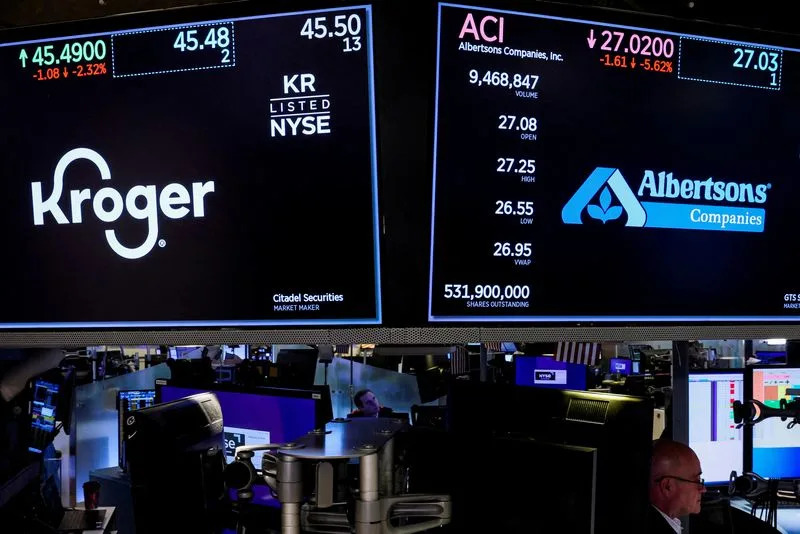Canada's labour market ekes out another jobs gain in November as wages rise
Michelle Zadikian
·Senior Reporter
Fri, December 2, 2022

Statistics Canada reported the latest jobs report for November on Friday. REUTERS/Jesse Winter
Canada’s labour market added 10,000 jobs in November, building slightly on its massive 108,000 gain from the month prior, Statistics Canada reported on Friday.
The unemployment rate ticked lower to 5.1 per cent.
Wage growth, a key measure the Bank of Canada is watching as it tries to avoid a wage-price spiral, remained unchanged at 5.6 per cent. It’s the sixth month in a row that wages have risen by more than five per cent.
The small gain in employment comes as economic growth in the third quarter was stronger than expected.
GDP grew 2.9 per cent on an annualized basis in the three-month period, bolstering some Bay Street economists’ conviction that the central bank will opt for a half-point interest rate hike at its meeting next week.
Michelle Zadikian is a senior reporter at Yahoo Finance Canada. Follow her on Twitter @m_zadikian.
Unemployment rate drops slightly to 5.1% in November: Statistics Canada
Fri, December 2, 2022

OTTAWA — Statistics Canada says employment was little changed in November as the economy added a modest 10,000 jobs.
In its latest labour force survey, the federal agency says Canada’s unemployment rate fell slightly to 5.1 per cent last month.
Employment rose in several industries, including finance, insurance, real estate, rental and leasing, manufacturing and in information, culture and recreation.
It fell in construction as well as wholesale and retail trade.
Wages were up 5.6 per cent compared to a year ago, marking the sixth consecutive month of wage growth above 5 per cent.
The agency says the employment rate among core-aged women hit a record high of 81.6 per cent in November.
This report by The Canadian Press was first published Dec. 2, 2022.
The Canadian Press
Here's a quick glance at unemployment rates for November, by province
Fri, December 2, 2022
OTTAWA — Canada's national unemployment rate held steady at 5.1 per cent in November. Here are the jobless rates last month by province (numbers from the previous month in brackets):
_ Newfoundland and Labrador 10.7 per cent (10.3)
_ Prince Edward Island 6.8 per cent (5.4)
_ Nova Scotia 6.0 per cent (6.7)
_ New Brunswick 7.3 per cent (6.7)
_ Quebec 3.8 per cent (4.1)
_ Ontario 5.5 per cent (5.9)
_ Manitoba 4.4 per cent (4.6)
_ Saskatchewan 4.2 per cent (4.6)
_ Alberta 5.8 per cent (5.2)
_ British Columbia 4.4 per cent (4.2)
This report by The Canadian Press was first published Dec. 2, 2022.
The Canadian Press
Here's a quick glance at unemployment rates for November, by Canadian city
Fri, December 2, 2022
OTTAWA — The national unemployment rate held steady at 5.1 per cent in November. Statistics Canada also released seasonally adjusted, three-month moving average unemployment rates for major cities. It cautions, however, that the figures may fluctuate widely because they are based on small statistical samples. Here are the jobless rates last month by city (numbers from the previous month in brackets):
_ St. John's, N.L. 6.9 per cent (5.9)
_ Halifax 5.2 per cent (5.5)
_ Moncton, N.B. 5.2 per cent (5.6)
_ Saint John, N.B. 6.5 per cent (6.5)
_ Saguenay, Que. 5.4 per cent (4.9)
_ Quebec City 3.0 per cent (2.9)
_ Sherbrooke, Que. 2.7 per cent (2.6)
_ Trois-Rivieres, Que. 4.1 per cent (4.3)
_ Montreal 4.3 per cent (4.7)
_ Gatineau, Que. 4.6 per cent (4.3)
_ Ottawa 4.4 per cent (4.2)
_ Kingston, Ont. 5.7 per cent (5.4)
_ Belleville, Ont. 5.2 per cent (5.9)
_ Peterborough, Ont. 3.1 per cent (4.8)
_ Oshawa, Ont. 5.1 per cent (5.5)
_ Toronto 6.3 per cent (6.2)
_ Hamilton, Ont. 5.0 per cent (4.9)
_ St. Catharines-Niagara, Ont. 5.4 per cent (6.4)
_ Kitchener-Cambridge-Waterloo, Ont. 6.0 per cent (5.9)
_ Brantford, Ont. 5.2 per cent (4.8)
_ Guelph, Ont. 5.0 per cent (5.0)
_ London, Ont. 5.9 per cent (6.5)
_ Windsor, Ont. 8.6 per cent (8.5)
_ Barrie, Ont. 4.8 per cent (4.9)
_ Greater Sudbury, Ont. 4.6 per cent (4.7)
_ Thunder Bay, Ont. 4.8 per cent (5.2)
_ Winnipeg 4.8 per cent (5.0)
_ Regina 4.5 per cent (5.0)
_ Saskatoon 4.0 per cent (4.1)
_ Lethbridge, Alta. 3.5 per cent (4.1)
_ Calgary 6.0 per cent (5.3)
_ Edmonton 5.5 per cent (5.2)
_ Kelowna, B.C. 4.9 per cent (4.3)
_ Abbotsford-Mission, B.C. 4.6 per cent (5.4)
_ Vancouver 4.4 per cent (4.4)
_ Victoria 3.5 per cent (4.3)
This report by The Canadian Press was first published Dec. 2, 2022.
The Canadian Press









